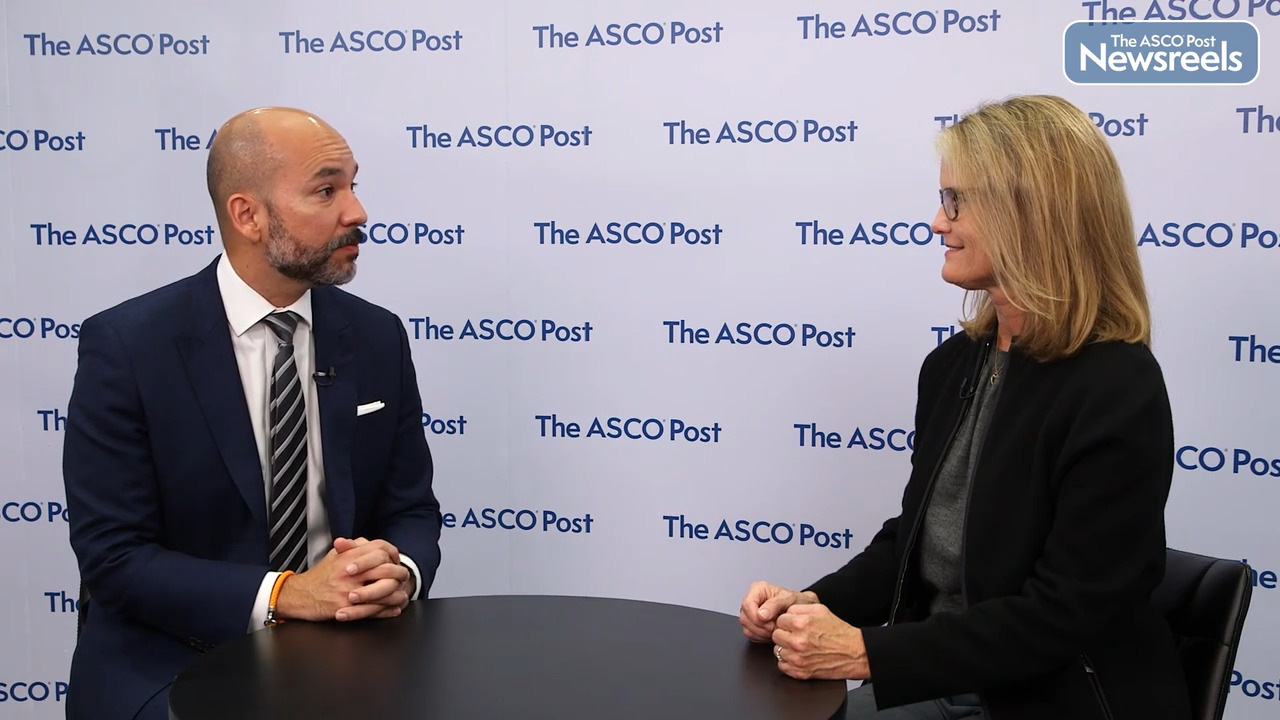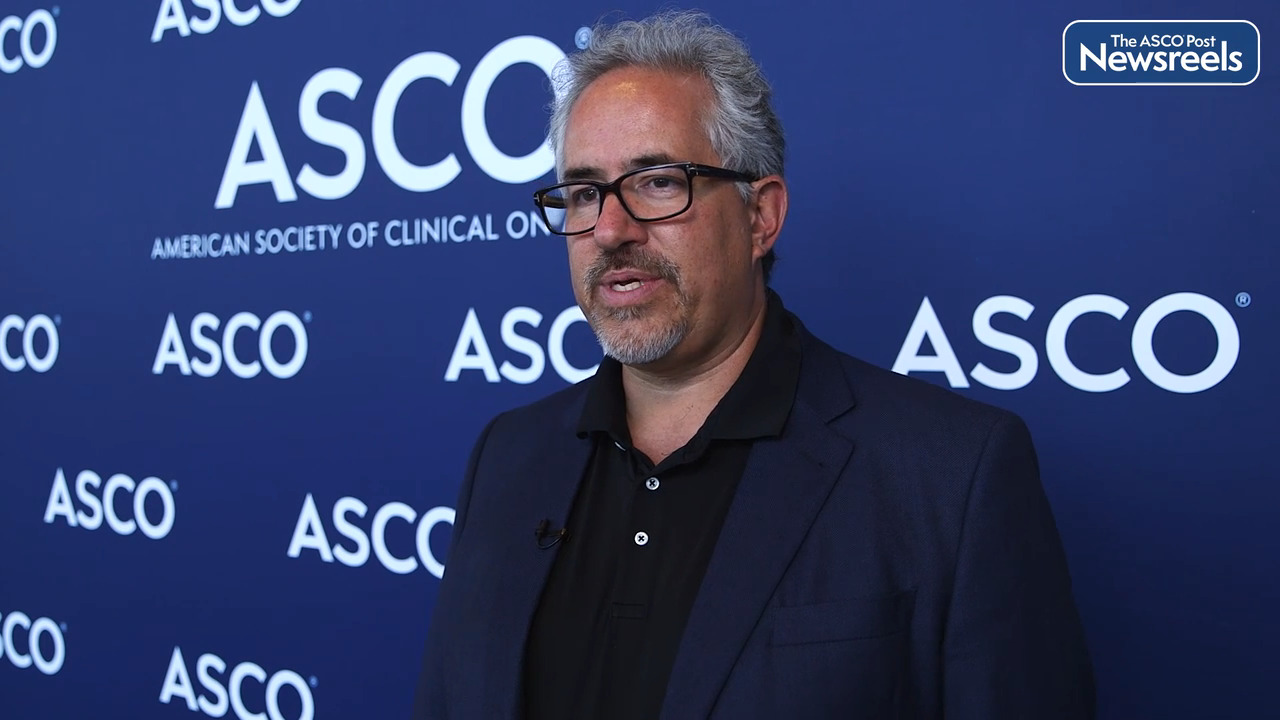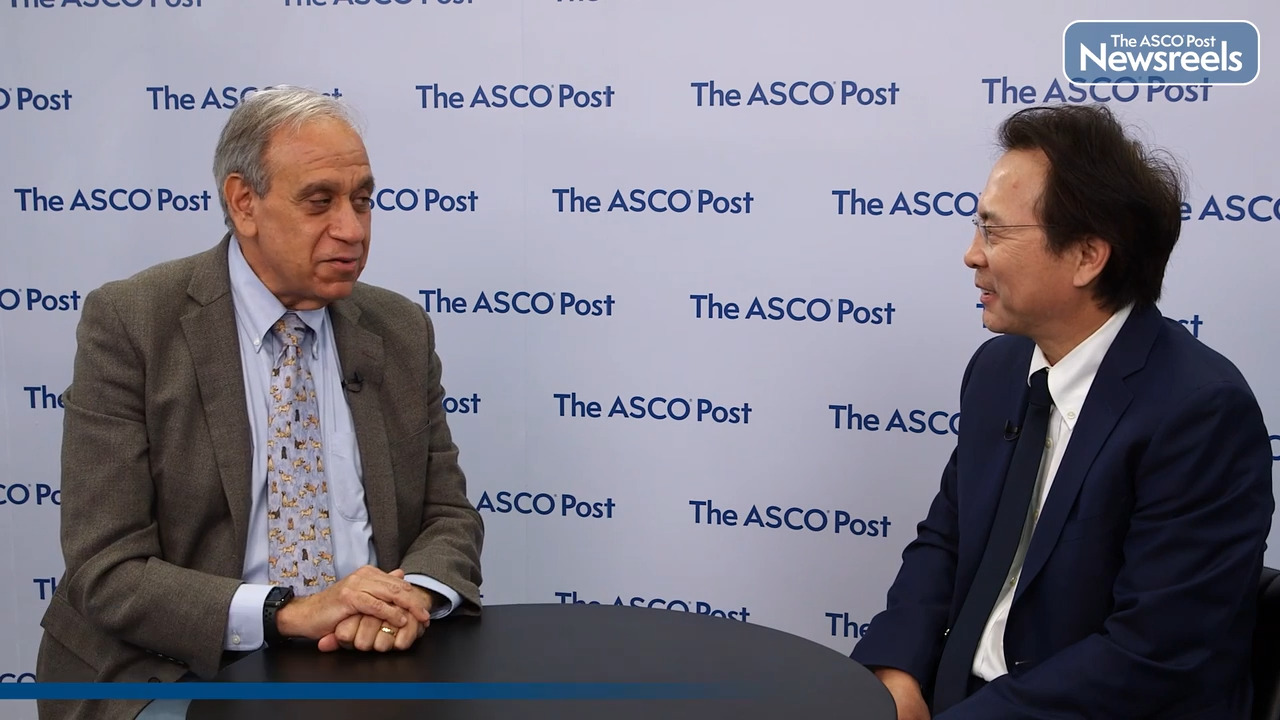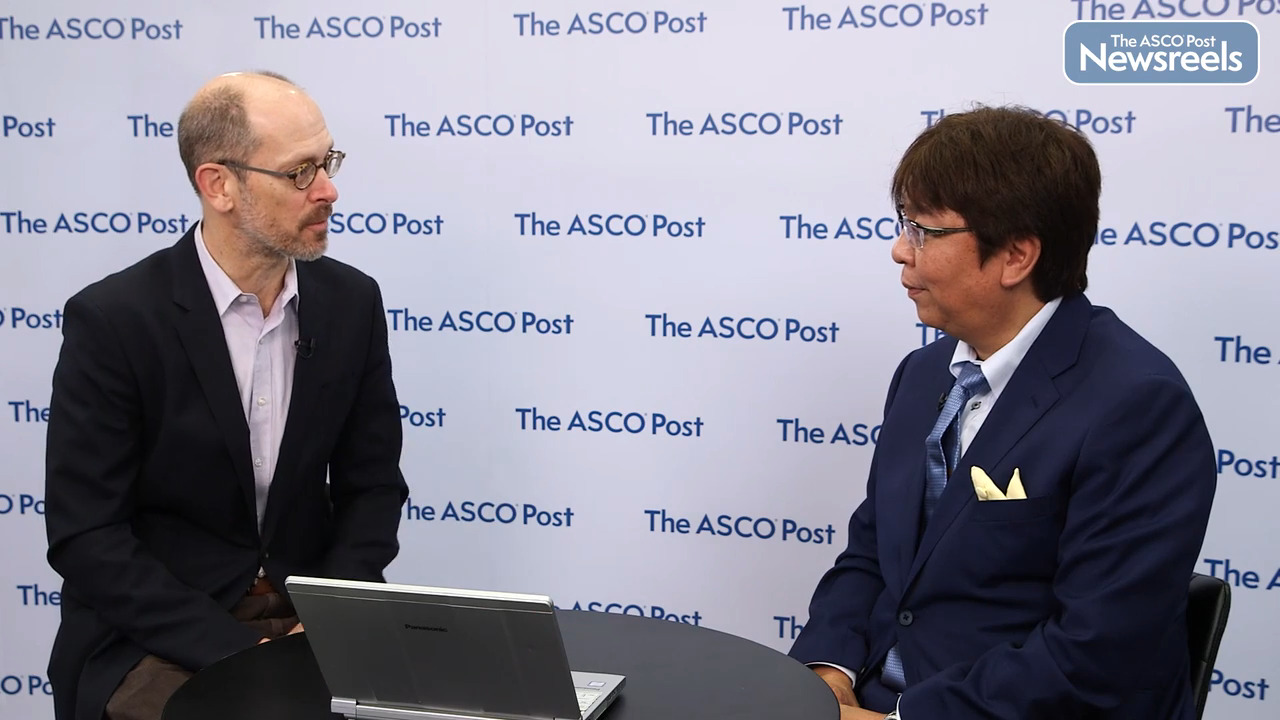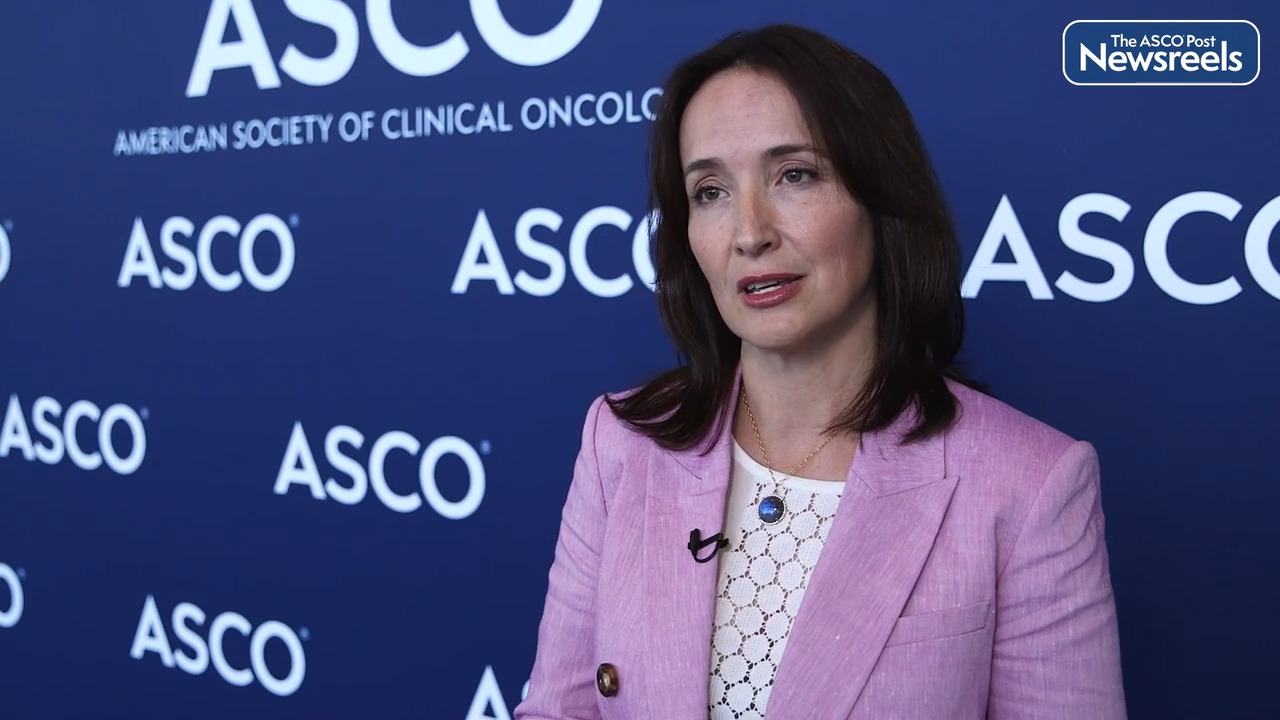Karim Chamie, MD, on Bladder Cancer: Final Results on N-803 and Bacillus Calmette-Guérin
2022 ASCO Annual Meeting
Karim Chamie, MD, of the University of California, Los Angeles, discusses final clinical results on combining the superagonist N-803 with bacillus Calmette-Guérin (BCG) in patients whose carcinoma in situ and high-grade non–muscle-invasive bladder cancers are unresponsive to BCG alone. Of note, cystectomy was avoided in more than 90% of patients with 2 years of follow-up (Abstract 4508).
Transcript
Disclaimer: This video transcript has not been proofread or edited and may contain errors.
So, patients with high-grade BCG unresponsive bladder cancer have limited treatment options. They often are offered either a radical cystectomy, which is a life altering operation which involves removal of the entire bladder and the surrounding organs, or treatments with systemic immunotherapies, such as pembrolizumab. With the QUILT-3032 study, what we did was we utilized intravesical IL-15 super-agonists in combination with BCG for patients with BCG-unresponsive bladder cancer. It's a phase two, phase three single arm study in which we enrolled 84 patients with CIS, plus or minus papillary disease, and an additional 77 patients with papillary disease only. Patients received 50 mg of BCG plus 400 mcg of N-803. This was done intravascularly once a week for six weeks, followed by three weekly treatments, similar to SWAG protocols. Our primary endpoint was safety and efficacy. Specifically, as far as efficacy, it was complete response rate at any time, and durability, which meant watching patients respond to therapy and median duration. What we found was that 71% of patients with carcinoma in situ responded at any time, and the median duration of that response was 26.2 months. Which is a phenomenal finding, because patients now have the option of being able to have intravesical therapy and maintaining their bladder for at least two years in this cohort. This compares favorably to checkpoint inhibitors, such as pembrolizumab, where they found 41% of patients had a complete response rate at any time, and the median duration of that response was about a year. The BLA for this treatment, namely N-803 plus BCG, was submitted and we hope to attain approval of this vitally important drug for this critically unmet need and frail cohort of patients.
Related Videos
The ASCO Post Staff
Gilberto de Lima Lopes, Jr, MD, MBA, of the Sylvester Comprehensive Cancer Center at the University of Miami, and Karen L. Reckamp, MD, of Cedars-Sinai Medical Center, discuss phase II findings from substudy S1800A of the Lung-MAP protocol. The data showed that ramucirumab and pembrolizumab improved overall survival compared with the standard of care for patients with advanced non–small cell lung cancer who were previously treated with immunotherapy and platinum-based chemotherapy (Abstract 9004).
The ASCO Post Staff
Ruben A. Mesa, MD, of Mays Cancer Center at UT Health San Antonio MD Anderson Cancer Center, discusses new findings from the MOMENTUM study. This trial showed that in symptomatic and anemic patients with myelofibrosis, momelotinib was superior to danazol for symptom and spleen responses, as well as transfusion requirements (Abstract 7002).
The ASCO Post Staff
Andrew D. Zelenetz, MD, PhD, of Memorial Sloan Kettering Cancer Center, and Michael L. Wang, MD, of The University of Texas MD Anderson Cancer Center, discuss primary results from the phase III SHINE study, which showed that ibrutinib, in combination with bendamustine/rituximab and rituximab maintenance, may set a new benchmark for patients aged 65 or older with mantle cell lymphoma. With a median progression-free survival of 6.7 years, the ibrutinib combination is more beneficial than currently used chemoimmunotherapy (approximately 1.5–3.5 years) (Abstract LBA7502).
The ASCO Post Staff
Michael J. Overman, MD, of The University of Texas MD Anderson Cancer Center, and Takayuki Yoshino, PhD, MD, of the National Cancer Center Hospital East, Japan, discuss results from the PARADIGM trial, the first prospective study to test the superiority of panitumumab vs bevacizumab in combination with standard doublet first-line chemotherapy for patients with RAS wild-type and left-sided metastatic colorectal cancer. The study showed that panitumumab improved overall survival in combination with mFOLFOX6, which may establish a standard first-line combination regimen for this population (Abstract LBA1).
The ASCO Post Staff
Pamela L. Kunz, MD, of the Yale University School of Medicine, discusses new findings from the ECOG-ACRIN E2211 trial, which showed the longest progression-free survival and highest response rates with temozolomide plus capecitabine reported to date for patients with pancreatic neuroendocrine tumors. The presence of a deficiency of MGMT, the drug-resistance gene, was associated with greater odds of an objective response (Abstract 4004).
